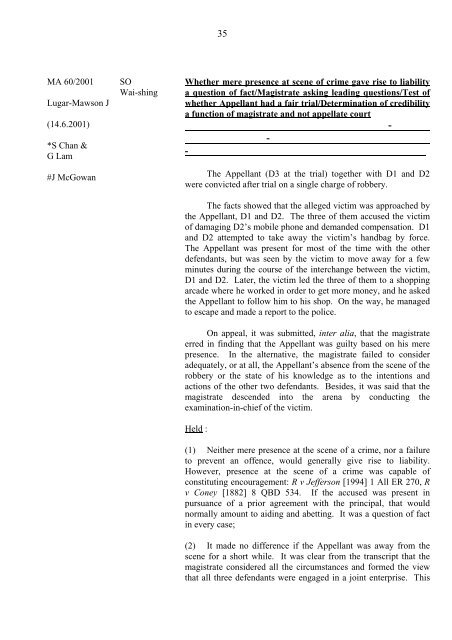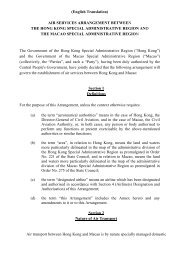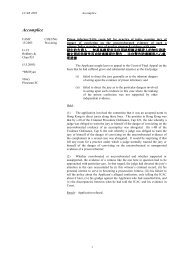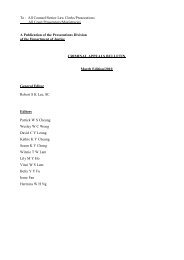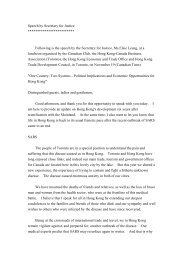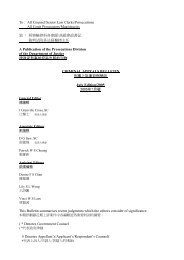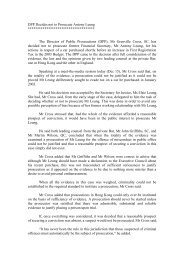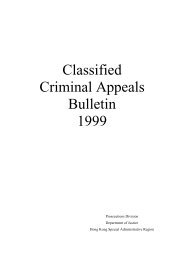刑事檢控科各律師/高級律政 - Department of Justice
刑事檢控科各律師/高級律政 - Department of Justice
刑事檢控科各律師/高級律政 - Department of Justice
- No tags were found...
You also want an ePaper? Increase the reach of your titles
YUMPU automatically turns print PDFs into web optimized ePapers that Google loves.
35MA 60/2001Lugar-Mawson J(14.6.2001)*S Chan &G Lam#J McGowanSOWai-shingWhether mere presence at scene <strong>of</strong> crime gave rise to liabilitya question <strong>of</strong> fact/Magistrate asking leading questions/Test <strong>of</strong>whether Appellant had a fair trial/Determination <strong>of</strong> credibilitya function <strong>of</strong> magistrate and not appellate court- - - The Appellant (D3 at the trial) together with D1 and D2were convicted after trial on a single charge <strong>of</strong> robbery.The facts showed that the alleged victim was approached bythe Appellant, D1 and D2. The three <strong>of</strong> them accused the victim<strong>of</strong> damaging D2’s mobile phone and demanded compensation. D1and D2 attempted to take away the victim’s handbag by force.The Appellant was present for most <strong>of</strong> the time with the otherdefendants, but was seen by the victim to move away for a fewminutes during the course <strong>of</strong> the interchange between the victim,D1 and D2. Later, the victim led the three <strong>of</strong> them to a shoppingarcade where he worked in order to get more money, and he askedthe Appellant to follow him to his shop. On the way, he managedto escape and made a report to the police.On appeal, it was submitted, inter alia, that the magistrateerred in finding that the Appellant was guilty based on his merepresence. In the alternative, the magistrate failed to consideradequately, or at all, the Appellant’s absence from the scene <strong>of</strong> therobbery or the state <strong>of</strong> his knowledge as to the intentions andactions <strong>of</strong> the other two defendants. Besides, it was said that themagistrate descended into the arena by conducting theexamination-in-chief <strong>of</strong> the victim.Held :(1) Neither mere presence at the scene <strong>of</strong> a crime, nor a failureto prevent an <strong>of</strong>fence, would generally give rise to liability.However, presence at the scene <strong>of</strong> a crime was capable <strong>of</strong>constituting encouragement: R v Jefferson [1994] 1 All ER 270, Rv Coney [1882] 8 QBD 534. If the accused was present inpursuance <strong>of</strong> a prior agreement with the principal, that wouldnormally amount to aiding and abetting. It was a question <strong>of</strong> factin every case;(2) It made no difference if the Appellant was away from thescene for a short while. It was clear from the transcript that themagistrate considered all the circumstances and formed the viewthat all three defendants were engaged in a joint enterprise. This


